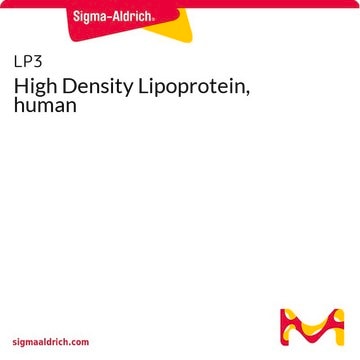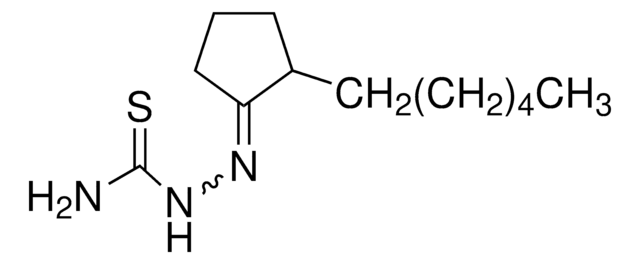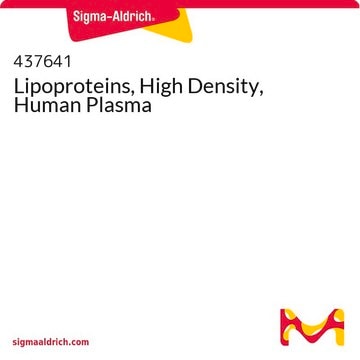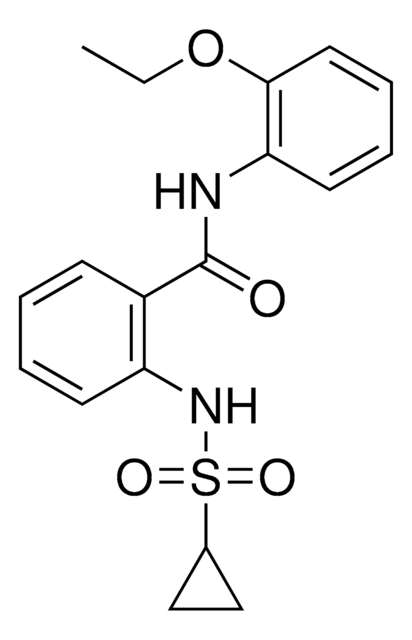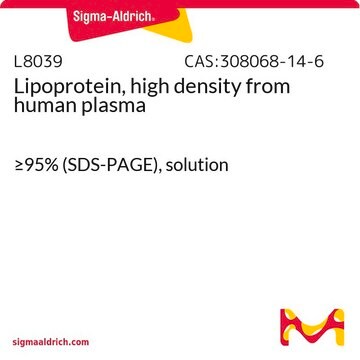373210
BLT-1
≥95% (HPLC), solid, HDL receptor SR-BI inhibitor, Calbiochem®
Synonym(s):
HDL Receptor SR-BI Inhibitor, BLT-1, Block Lipid Transport-1, 2-Hexyl-1-cyclopentanone thiosemicarbazone, 33M20
About This Item
Recommended Products
product name
HDL Receptor SR-BI Inhibitor, BLT-1, The HDL Receptor SR-BI Inhibitor, BLT-1, also referenced under CAS 321673-30-7, controls the biological activity of HDL Receptor SR-B. This small molecule/inhibitor is primarily used for Phosphorylation & Dephosphorylation applications.
Quality Level
Assay
≥95% (HPLC)
form
solid
manufacturer/tradename
Calbiochem®
storage condition
OK to freeze
protect from light
color
white
solubility
DMSO: 100 mg/mL
shipped in
ambient
storage temp.
2-8°C
InChI
1S/C12H23N3S/c1-2-3-4-5-7-10-8-6-9-11(10)14-15-12(13)16/h10H,2-9H2,1H3,(H3,13,15,16)/b14-11+
InChI key
OWGUSBISUVLUJF-SDNWHVSQSA-N
General description
Packaging
Warning
Reconstitution
Other Notes
Raldua, D., and Babin, P.J. 2007. Toxicol. Lett.175, 1.
Nieland, T.J.F., et al. 2002. Proc. Natl. Acad. Sci. USA99, 15422.
Peterson, R.T., et al. 2000. Proc. Natl. Acad. Sci. USA97, 12965.
Legal Information
Storage Class Code
11 - Combustible Solids
WGK
WGK 3
Flash Point(F)
Not applicable
Flash Point(C)
Not applicable
Certificates of Analysis (COA)
Search for Certificates of Analysis (COA) by entering the products Lot/Batch Number. Lot and Batch Numbers can be found on a product’s label following the words ‘Lot’ or ‘Batch’.
Already Own This Product?
Find documentation for the products that you have recently purchased in the Document Library.
Our team of scientists has experience in all areas of research including Life Science, Material Science, Chemical Synthesis, Chromatography, Analytical and many others.
Contact Technical Service